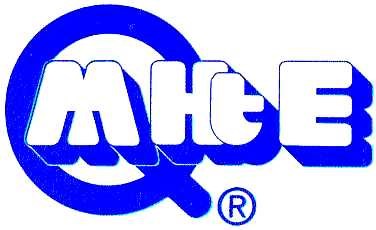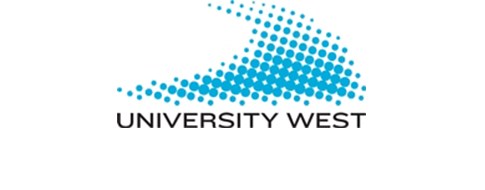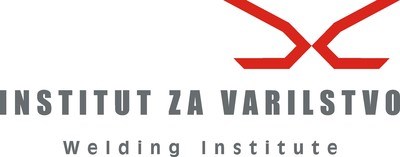BET - Better Effect of Training
BET will help improving the fabrication VET system for staff working in fabrication industry. The new in-company team system will target this area, thus offering a system solution with standarized and harmonized methods for support during the theoretical training phases and in particular the work based training to be organized at companies that may be located in remotly geographical areas.
"The European Commission's support for the production of this publication does not constitute an endorsement of the contents, which reflect the views only of the authors, and the Commission cannot be held responsible for any use which may be made of the information contained therein."
Background
To realise the ambitious growth targets set by each fabrication country in Europe will require a flexible and mobile workforce with the skills and knowledge to implement the new fabrication and assembly methods, and technologies deployed by the leading multinational fabrication and supplying companies. This growth in fabrication must be achieved efficiently, alongside high standards of Health, Environment and Safety regulations, the mitigation of environmental impact and new ICT skills. This necessitates an upgrading of workforce skills and qualifications through the deployment of more innovative and accessible work-based learning systems that can fully motivate and support staff development and the attainment of nationally recognised qualifications that are respected by industry.
NUMBER AND PROFILES OF PARTICIPANTS
Whilst there are some effective VET systems to support youth development, most notably in Norway and Sweden, mature entrants are not so well served. They currently lack structured in-company support during work based training activites and practice, including support from tutoring staff during learning and implementation of theory at companies that may be located far away from the VET providers. At the same time too many staff with strong practical skills face learning and writing disabillities, while other experience challenges related to the young school leavers. In some countries like Hungary, once in employment, formal VET pathways leading to the completion of a National Qualifications (NQs) in fabricatin are hard to access or not well supported. Approximately, only 10% of the inspector workfoce in Norway and Sweden has got a NQ. Therefore, most of the workforce remains un-qualified and highly dependent on informal inhouse training (non-formal VET) provided by the companies themselves.
OBJECTIVES
The ultimate goal is to develop a new team supported work based learning process within fabrication VET that improves the conditions for learning theory for inspector opperative staff with strong practical skills, but which at the same time are challenged with learning and writing disabillities or has experienced to be a school leaver. It enables individual’s informal competences and skills to become recognised and accepted, within fabrication NQ, and built on through individualised and group learning supported processes.
ACTIVITIES
This partnership will develop and pilot a system for the delivery of innovative ‘individualised’ work- based learning practices supported by in-company teams. The pre-requisite processes recognising prior learning and flexible learning resources will be aligned to a shared framework of industry endorsed learning outcomes. The continuous assessment of practical competence at the workplace will involve employers and inform NQ assessment results that are understood by the main fabrication companies in Europe. Consequently, work-based VET pathways and qualifications will gain parity of esteem and learner mobility will be promoted, aided by European tools, including EQF and ECVET. The European industry’s aim of promoting knowledge exchange between the main fabrication countries and collective problem solving will be synergised by the shared learning system.
METHODS
There is a gap between the ambitions of the industry, and the current training methods which do not take into account how many staff that are champions in problem solving, while they at the same time avoid and fears the required theoretical training. This will be resolved by developing:
- a common framework of learning outcomes for European fabrication developed through a formalized fabrication skills and VET provider network
- new work-based learning and assessment delivery systems and resources that increase capacity for fabrication skills instruction and contribute to a quality assured assessment and formal VET delivery system, supported by their VET providers
- national work-based learning delivery partnerships and support teams that will update fabrication VET resources, shared by the VET provider network and their industry associated partners
- piloting the delivery of fabrication NQs to work-based learners utilising shared resources and evaluating the learners’ experiences, to inform the development of improved teams supported VET learning systems
RESULTS
BET will help improving the fabrication VET system for staff working in fabrication industry. The new in-company team system will target this area, thus offering a system solution with standarized and harmonized methods for support during the theoretical training phases and in particular the work based training to be organized at companies that may be located in remotly geographical areas.
IMPACT
The overall mission is to improve the accessibility and quality of work-based learning for inspector operatives at two levels, and start preparíng for ‘harmonisation" of industry endorsed NQ, hereby promoting learner and skilled labour mobility.
About the programme
- Project Reference: 2020-1-SE01-KA202-077898
- EU Grant: 439991 EUR
- Programme: Erasmus+
- Key Action: Cooperation for innovation and the exchange of good practices
- Action Type: Strategic Partnerships for vocational education and training
Project coordinator
To learn more, visit:
BET
Research Area
- Teknik
- Produktionsteknik
Research environment / Institution
- Produktionsteknik
- Institutionen för ingenjörsvetenskap
Project leader
Project Participants external
Partners

Slovensko drustvo za varilno tehniko

Magyar Hegesztéstechnikai és Anyagvizsgálati Egyesülés
Project time
2020 - 2023






